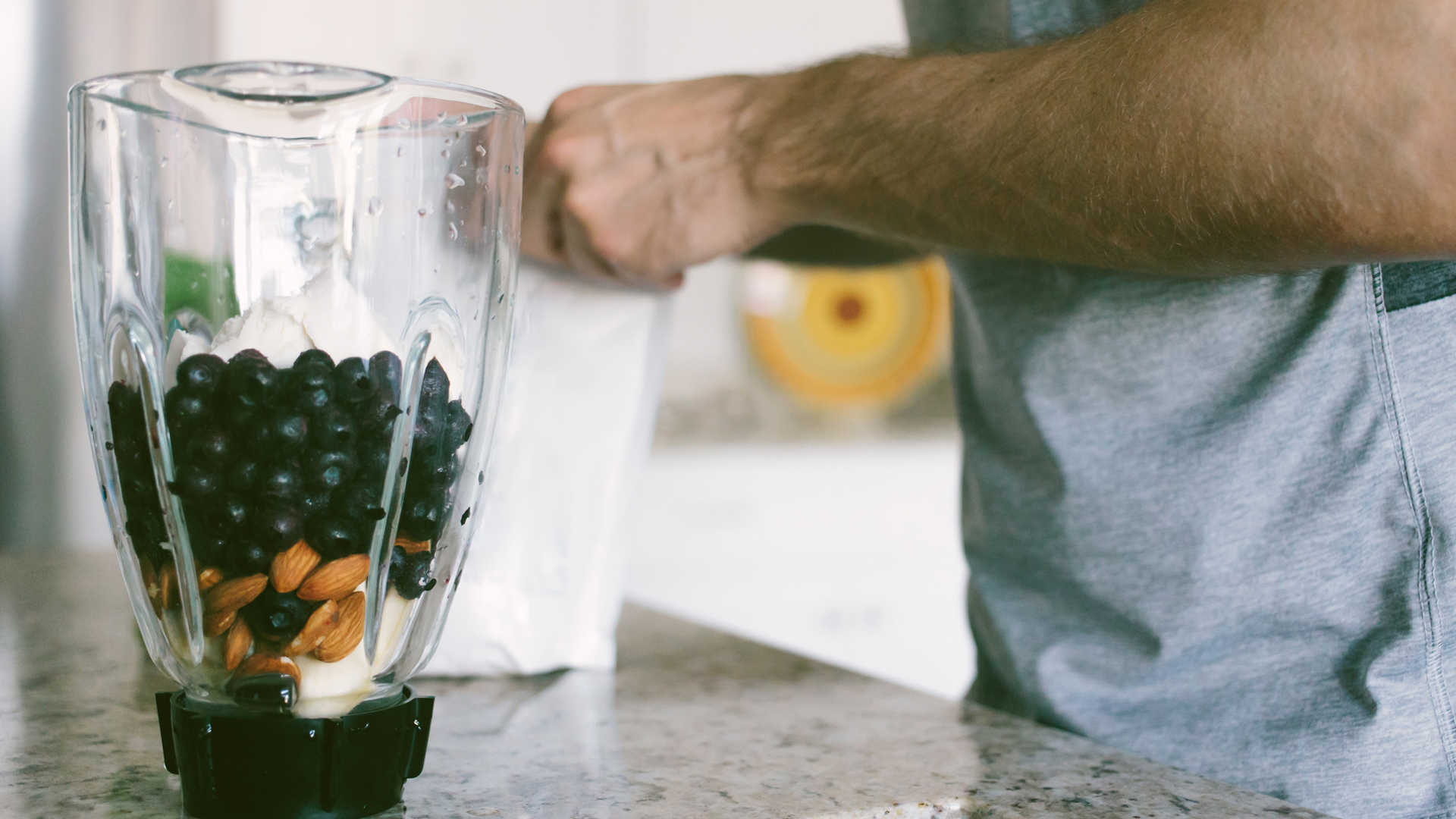Six benefits of probiotics for men
We look into the reasons why probiotics for men might promote good health, and why men’s probiotic needs may differ from women’s

Get the world’s most fascinating discoveries delivered straight to your inbox.
You are now subscribed
Your newsletter sign-up was successful
Want to add more newsletters?

Delivered Daily
Daily Newsletter
Sign up for the latest discoveries, groundbreaking research and fascinating breakthroughs that impact you and the wider world direct to your inbox.

Once a week
Life's Little Mysteries
Feed your curiosity with an exclusive mystery every week, solved with science and delivered direct to your inbox before it's seen anywhere else.

Once a week
How It Works
Sign up to our free science & technology newsletter for your weekly fix of fascinating articles, quick quizzes, amazing images, and more

Delivered daily
Space.com Newsletter
Breaking space news, the latest updates on rocket launches, skywatching events and more!

Once a month
Watch This Space
Sign up to our monthly entertainment newsletter to keep up with all our coverage of the latest sci-fi and space movies, tv shows, games and books.

Once a week
Night Sky This Week
Discover this week's must-see night sky events, moon phases, and stunning astrophotos. Sign up for our skywatching newsletter and explore the universe with us!
Join the club
Get full access to premium articles, exclusive features and a growing list of member rewards.
What are probiotics for men and why might you need to be taking them? If you’re concerned about your gut heath, and want to know how you can help to boost your digestive function and potentially improve your immunity and mental health, probiotics have the potential to support you in these areas. On top of this, they may help with weight loss, which can be useful for men over 50, after testosterone drop off makes it harder to keep body fat down.
Dr Giuseppe Aragona, a GP and online doctor for OnlinePrescriptionDoctor, explains the benefits of probiotics on men’s health. “One of the best ways to take care of your digestive and overall health is through probiotic supplements,” he says. “Probiotics are beneficial micro-organisms that live in your gut and help to support your physical and mental health. Every person's gut microbiome has different bacteria so your body's reaction to probiotics may be different to someone else. However, overall probiotics are beneficial for men's health, and support wellbeing.” Not sure which supplement may be right for you? Our buying guide on best probiotics can be a good starting point.
Below, we’ll delve into each benefit of probiotics for men, and give you an overall idea of why your probiotic needs might be different as a man.
And if you're more interested in women's health, check our article on how probiotics can benefit women.
Digestive health
A study in the Journal of Neurogastroenterology and Motility indicates that there is a direct link between sex hormones and the microbiome. This means that women and men may have differing needs when it comes to probiotic supplementation, as we have different concentrations of different sex hormones. Some strains of probiotics for men may actually be better for you than standard types, or probiotics for women, as they’re tailored to your needs as a man.
Aragona agrees that probiotics make a palpable difference to gut health. “The main benefits of taking probiotics would be replenishment of good bacteria in your gut, reducing digestive disorder symptoms, supporting mental health, boosting the immune system and helping with weight loss.”
- Related: 6 probiotic foods to support your gut
- Related: Probiotics vs digestive enzymes
Mental health
You may have heard the term ‘gut-brain axis’ and wondered what it means. A study in the Journal of Medicine and Food supports growing evidence that there is a direct link between the gut and the brain. The gut microbiome may even have the power to control your food choices, as it uses the nervous system and the vagus nerve to communicate with our brains. There’s a reason the gut is known as the ‘second brain’. With this in mind, a healthy gut microbiome can support good mental health, and an unhealthy gut microbiome can contribute to mental health issues.
Get the world’s most fascinating discoveries delivered straight to your inbox.
Aragona says that probiotics have the power to improve your mood and support better overall mental health. “Probiotics can also boost mood, cognitive function and can help to lower stress and anxiety. They may also prevent the development of mental health issues, such as depression in men,” he says. “However, of course, you cannot rely on probiotics, and if you are suffering with mental health issues you should consult a medical professional.”
- Related: Do probiotics help IBS?
- Related: Probiotics for Eczema: do they really work?
Immunity
A study in Food Research International indicates that there is a close relationship between a healthy gut microbiome and good immunity. A diverse and healthy gut microbiome can reduce gut wall permeability, which in turn prevents bad microorganisms from traveling through the gut wall into the blood, which serves as a highway to the rest of the body.
“Probiotics can help your body to fight off illness and disease as they enhance the immune system, and of course a healthy immune system is key for a healthy functioning body,” says Aragona. “You can't totally rid your body of bad bacteria from your system, but you can balance your good and bad bacteria out by taking probiotics. Men with busy lives may find that they don't have time to ensure they are eating all the right foods every day, and so probiotics can help with this and help to balance out your system and keep your digestive system healthy and functioning.”

Another study in the Journal of Autoimmunity found that there are gender-specific differences in immunity, further suggesting that tailored probiotics for men might be a better choice. Additionally, the study indicates that our gut microbiome can produce so-called “happy hormones” serotonin and dopamine, illustrating the intrinsic relationship our gut health has with our mental health.
The journal Pharmacology & Therapeutics has published research that indicates that probiotics may be a new frontier in therapeutic aids to support mental health and cognitive conditions, such as anxiety, depression, autism spectrum disorders and Parkinson's disease. It also supports the gender split in probiotic requirements due to the interaction of the microbiome with our sex hormones.
Prostate health
As a man, it’s important to care for your prostate, with one in eight men diagnosed with prostate cancer in their lifetime. This goes up to six cases in 10 in men who are 65 or older, with the average age of diagnosis being 66. With this in mind, taking care of your prostate might be of particular concern for men over 50.
There is evidence that probiotics can help to reduce inflammation in the prostate, according to a trial in La Clinica Terapeutica. The trial found that probiotics reduce the bacterial load of E. coli and E. faecalis in urine cultures, which promotes better prostate health and can help prevent swelling of the prostate (prostatitis) which can lead to further prostate issues.
Testosterone
Nutritionist Jenny Tschiesche, of sugar-free and vegan vitamin brand Nutriburst, tells LiveScience about the effects that probiotics can have on testosterone levels. “The stress hormone cortisol suppresses testosterone, and it has been proven in studies that probiotics can reduce cortisol levels therefore increasing testosterone levels,” she says.
If you are trying to conceive and are looking for more ways to support your fertility, check out these 10 tips for men trying to conceive.
Weight management
Aragona says that after the ‘male menopause’, where testosterone levels drop off, some men see an uptick in their weight. “Probiotics can also help men to manage their weight. Aging and hormonal change can contribute to weight gain in men, especially when testosterone levels drop,” he says. “Probiotic strains such as bifidobacterium lactis can help with any unwanted weight gain and promote healthy weight loss.”
A study in Current Obesity Reports supports this point, indicating the beneficial effects on weight reduction and other metabolic parameters via probiotic involvement in gut microbiota modulation. In short, a healthy gut microbiome can help you keep the pounds off, although the study states that more human trials need to be conducted in the area.

Why are men's probiotic needs different to women?
So, how individualized should your probiotics be? Aragona says that men and women often experience different digestive issues, which is another reason they tend to require different probiotics.
“The type of probiotic strain being ingested is always dependent on the person, as not one person has the same gut bacteria or microbiome,” he says. “And the same goes for men's and women’s probiotics. While they offer similar benefits, ultimately, they have been made specifically for their sex. For example, while women more commonly experience greater issues in the lower digestive tracts, such as constipation or IBS, men experience more in the upper gastrointestinal such as acid reflux, and so the needs differ and it is best to stick to the probiotic made for you.”
This article is for informational purposes only and is not meant to offer medical advice.

Lou Mudge is a health writer based in Bath, United Kingdom for Future PLC. She holds an undergraduate degree in creative writing from Bath Spa University, and her work has appeared in Live Science, Tom's Guide, Fit & Well, Coach, T3, and Tech Radar, among others. She regularly writes about health and fitness-related topics such as air quality, gut health, diet and nutrition and the impacts these things have on our lives.
She has worked for the University of Bath on a chemistry research project and produced a short book in collaboration with the department of education at Bath Spa University.
 Live Science Plus
Live Science Plus










